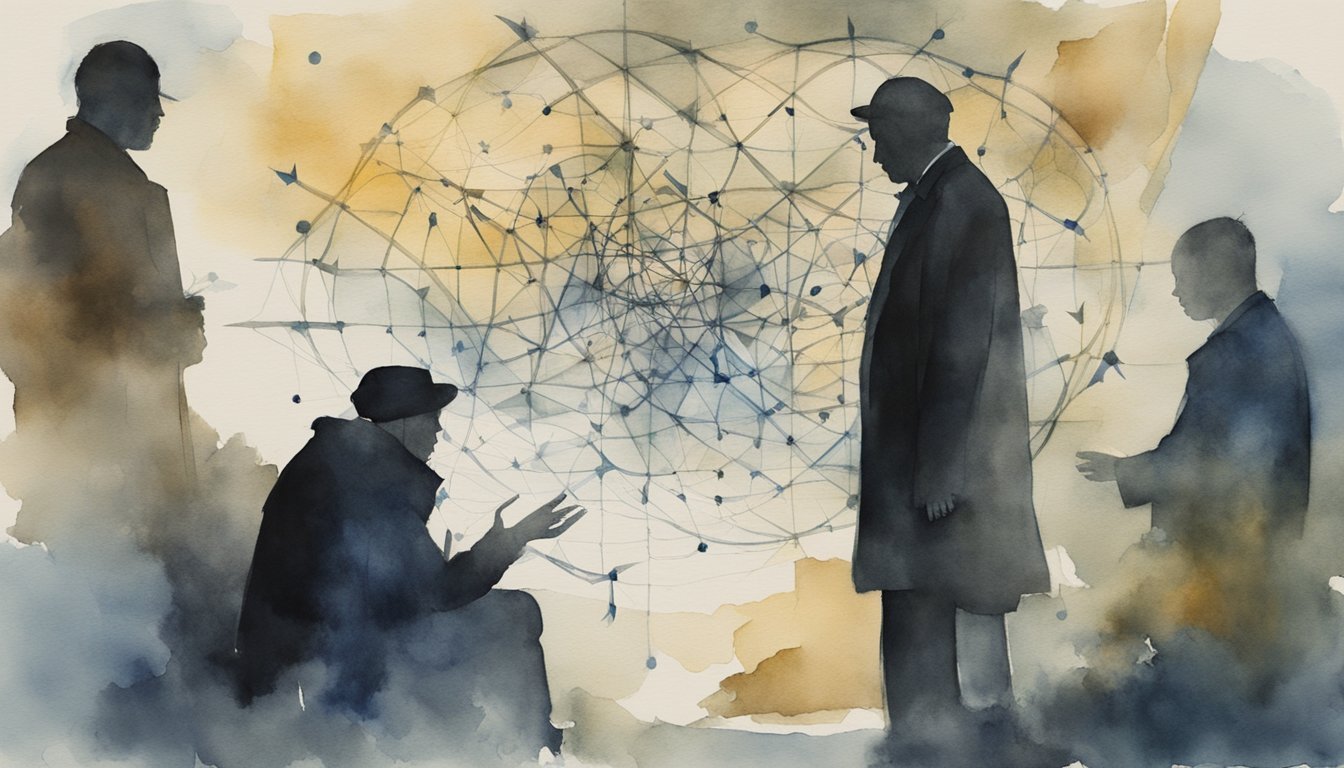Understanding Conspiracy Theories
Conspiracy theories have ingrained themselves in the fabric of society, touching on everything from politics to public health.
Exploring their roots and impact can shed light on why they are so pervasive and influential.
Psychological Roots
The allure of conspiracy theories often lies in their ability to provide simplistic explanations for complex events.
This tendency can be exacerbated by psychological phenomena such as cognitive bias and illusory pattern perception, which lead people to see connections where none exist.
Intensified feelings of anxiety, uncertainty, and a lack of sense of control may also contribute to a person’s susceptibility to believing in implausible scenarios.
- Distrust also fuels conspiracy beliefs, often targeting institutions and authorities.
- Schizotypy, a personality characteristic, has been linked to a higher propensity for conspiracy belief.
Social and Cultural Factors
Conspiracy theories don’t just stem from cognitive biases; they are reinforced by social and cultural dynamics.
They frequently thrive in communities with high levels of prejudice and can foster a strengthened sense of belonging among those who feel marginalized or alienated.
Additionally, these theories can offer an illusory sense of security in an incomprehensible world.
- Common in groups who have had negative experiences with authority figures.
- Can act as a psychological mechanism to address feelings of powerlessness or social disenfranchisement.
Media Influence and the Internet
The role of the media, particularly the web and social media, in the dissemination of conspiracy theories is profound.
These platforms can create echo chambers where misinformation is amplified and goes unchallenged.
The internet provides a breeding ground for the spread of these beliefs, largely due to the accessibility of both genuine and false information.
- Facilitates the rapid spread of misinformation.
- Connects individuals with irrational beliefs, reinforcing and validating their worldview.
Conspiracy theories present a complex interplay of psychological, social, and media-driven factors that culminate in the strong grip they hold on society.
Understanding these elements is crucial for addressing and mitigating the repercussions that these theories can have on individuals and communities.
Notable Conspiracy Theories and Their Impact

Conspiracy theories have swayed public opinion and shaped historical narratives.
They often emerge during periods of societal stress and can lead to significant impacts on politics, public health, and technological discourse.
Historical and Political Conspiracies
The assassination of John F. Kennedy remains a source of speculation, with the Warren Commission concluding that Lee Harvey Oswald acted alone, while other theories implicate the CIA or other entities.
The repercussions have been a long-standing mistrust in the U.S. government.
Similarly, the 9/11 attacks spurred various conspiracy theories, some implicating the federal government in the attacks, which have resulted in persistent skepticism around official accounts and have impacted American foreign and domestic policy.
Public Health and Environment
During the COVID-19 pandemic, misinformation ranging from the virus’s origins to vaccine efficacy proliferated.
Such theories contributed to vaccine hesitancy and resistance to public health measures.
Meanwhile, climate change discussions are muddled by theories about global warming being a hoax, impacting legislation and public response to environmental crises.
Technology and Outer Space
Conspiracy theories surrounding technology often involve suspicion of surveillance and privacy breaches, with prominent examples including theories about the Illuminati controlling global events.
The moon landing hoax theory challenged the U.S. government’s accomplishments and undermined public trust in scientific institutions.
These narratives reflect a broader fear and misunderstanding of technological advancements and outer space exploration.

